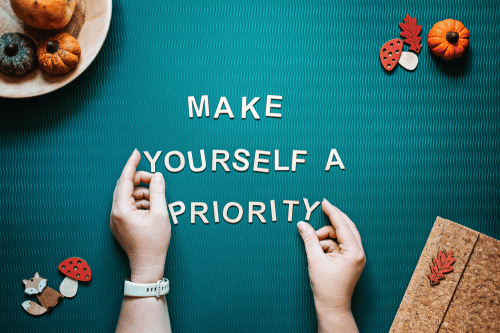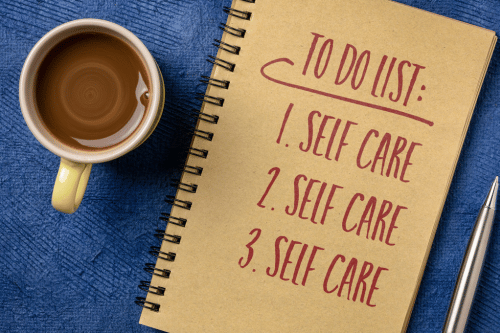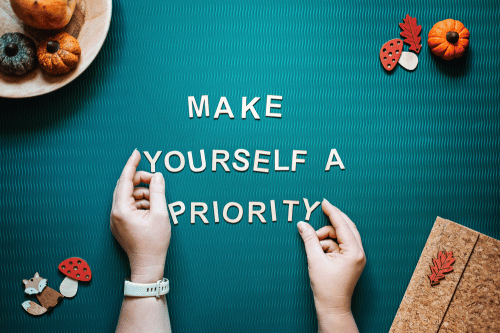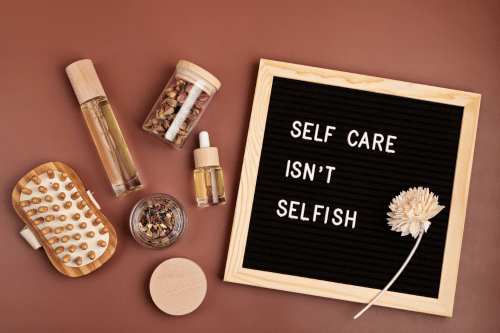Self Care Ideas for Mental Health
Taking care of your mental health is just as important as maintaining your physical well-being. Self-care plays a vital role in achieving emotional and mental balance, allowing individuals to lead healthier, happier lives. Here, we explore practical self care ideas for mental health that can help you reduce stress, enhance well-being, and feel more centered.
Understanding Self Care and Its Importance

Self care involves engaging in activities that improve your mental, emotional, and physical health. Incorporating self care practices into your daily life can reduce anxiety, boost your mood, and enhance overall well-being. For those facing a mental health condition, self care strategies are essential for managing symptoms and improving quality of life.
The 7 Pillars of Self Care
The 7 pillars of self-care provide a holistic approach to improving overall health. These include:
Mental Self Care: Activities like journaling, meditation, or deep breathing help manage stress and enhance focus.
Physical Self Care: Regular exercise, eating nutritious meals, and getting enough sleep are key.
Emotional Self Care: Engage in activities that help process emotions, such as therapy or creative expression.
Social Self Care: Building strong connections with family members, friends, or a support group fosters a sense of belonging.
Spiritual Self Care: Practices like yoga, prayer, or creating a vision board can deepen your sense of purpose.
Professional Self Care: Setting boundaries and taking lunch breaks improve workplace well-being.
Environmental Self Care: Keeping your living and working spaces clean and organized enhances psychological well-being.
Self Care Ideas for Mental Health

1. Practice Mindfulness
Mindfulness involves focusing on the present moment. Simple activities like mindful breathing or observing your five senses can help relieve stress and enhance self-awareness.
Mindfulness can also be practiced through meditation apps or guided sessions. These tools can help you develop a consistent mindfulness practice, making it easier to stay present in your daily life. Remember, even a few minutes a day can make a significant difference.
2. Incorporate Physical Activity
Physical health and mental health are deeply connected. Engaging in regular exercise, like joining a yoga class or taking a walk in fresh air, can work wonders for reducing anxiety and boosting mood.
Exercise doesn’t have to be strenuous to be effective. Activities like stretching, dancing, or gardening also qualify as physical self care. The key is finding something you enjoy and sticking with it. Incorporating movement into your routine can improve your overall well-being and help manage stress.
3. Create a Self Care Plan
Design a personalized self care routine that includes self care activities tailored to your needs. Whether it’s an at-home spa day or experimenting with a new recipe, having a plan ensures consistent practice.
A self care plan should address different aspects of your life. Consider creating a weekly schedule that includes activities for mental, emotional, and physical health. For example, set aside time for journaling, taking a bubble bath, or spending time outdoors. Regularly reviewing and updating your plan can help you stay on track.
4. Prioritize Quality Sleep
Getting enough sleep is crucial for mental and emotional health. Establish a calming bedtime routine to improve your overall well-being.
Quality sleep supports cognitive function and emotional resilience. To enhance your sleep hygiene, avoid screens before bed, maintain a consistent sleep schedule, and create a relaxing environment. Practices like deep breathing or reading a book can also prepare your mind and body for rest.
5. Connect with Loved Ones
Spending time with family members or volunteering at an animal shelter fosters emotional and social well-being. Sharing experiences can offer a different perspective and reduce emotional distress.
Building meaningful relationships takes effort, but the rewards are worth it. Regularly check in with loved ones or join a community group to expand your social circle. These connections can provide emotional support and improve your psychological well-being.
6. Explore Emotional Self Care
Engage in emotional self care activities like journaling, painting, or speaking to a licensed clinical psychologist. These activities help process negative emotions and build self-esteem.
Emotional self care also involves setting boundaries and learning to say no when necessary. Recognizing and honoring your feelings is a powerful way to maintain balance and avoid emotional exhaustion. Additionally, practices like gratitude journaling can shift your focus to positive aspects of life.
7. Try Deep Breathing Exercises
Deep breathing is a simple yet powerful tool to manage stress and anxiety. Practicing this during a mental health day or when feeling overwhelmed can make a big difference.
Techniques like diaphragmatic breathing or box breathing can be practiced anywhere. These exercises help calm the nervous system, making it easier to focus and feel calm. Consider integrating breathing exercises into your daily routine for long-term benefits.
8. Engage in Spiritual Practices
Spiritual self care involves connecting with your inner self and finding purpose. Activities like yoga, prayer, or creating a vision board can nurture your spiritual well-being.
Exploring spirituality doesn’t have to be tied to religion. It’s about discovering practices that resonate with you and bring a sense of peace. Spending time in nature, practicing mindfulness, or reading inspirational books are excellent ways to cultivate spiritual health.
Why Self Care Is Important

Self care isn’t just about indulgence; it’s about taking care of your mental, physical, and emotional needs. Prioritizing self care prevents emotional exhaustion, helps manage stress, and builds resilience.
For those dealing with a mental health condition, self care is a crucial component of recovery. It provides tools to manage symptoms and maintain stability. Moreover, practicing self care fosters self-awareness, helping individuals recognize their needs and take proactive steps to address them.
Practical Self Care Tips
Start Small: Incorporate little self care practices daily, like a short walk or enjoying a bubble bath.
Stay Consistent: Build a routine that includes spiritual practices, physical activity, and moments of self compassion.
Ask for Help: Don’t hesitate to seek support from loved ones or professionals.
De-stress: Watch TV, read good housekeeping articles, or spend time in nature to recharge.
Experiment: Try new activities like cooking a new recipe, exploring a hobby, or visiting an animal shelter.
Self Care and Professional Help
While self care is essential, it’s important to recognize when professional help is needed. If you’re struggling with persistent anxiety, depression, or emotional distress, consider reaching out to a licensed clinical psychologist or counselor. Combining self care with professional support ensures a comprehensive approach to mental health.
Self Care Ideas for Different Scenarios
Self Care at Work
Maintaining self care at work can improve productivity and reduce stress. Take regular breaks, practice mindfulness during meetings, and set boundaries to avoid feeling overwhelmed. A lunch break away from your desk can also help refresh your mind.
Self Care at Home
Create a calming environment by decluttering your space and adding personal touches like candles or plants. An at-home spa day or spending time with pets can be incredibly soothing. Additionally, practicing gratitude and reflecting on your day can enhance emotional health.
Self Care for Families
Encourage family members to join in self care activities like outdoor games or cooking together. Sharing these moments strengthens relationships and promotes collective well-being. Teaching children the importance of self care helps instill healthy habits early on.
Building a Sustainable Self Care Routine
A sustainable self care routine requires commitment and flexibility. Start by identifying your needs and preferences, then gradually incorporate activities into your daily life. Regularly assess what’s working and make adjustments as needed. Remember, self care is a journey, not a destination.
Final Thoughts
Incorporating self care ideas for mental health into your routine can lead to profound improvements in your physical and emotional health and your overall life. Starting to practice self care daily can create lasting benefits for your mental and emotional resilience. Whether you’re managing a mental health condition or seeking ways to improve your overall well-being, these strategies are a step in the right direction. Start your self care journey today and embrace a healthier, more balanced life.









